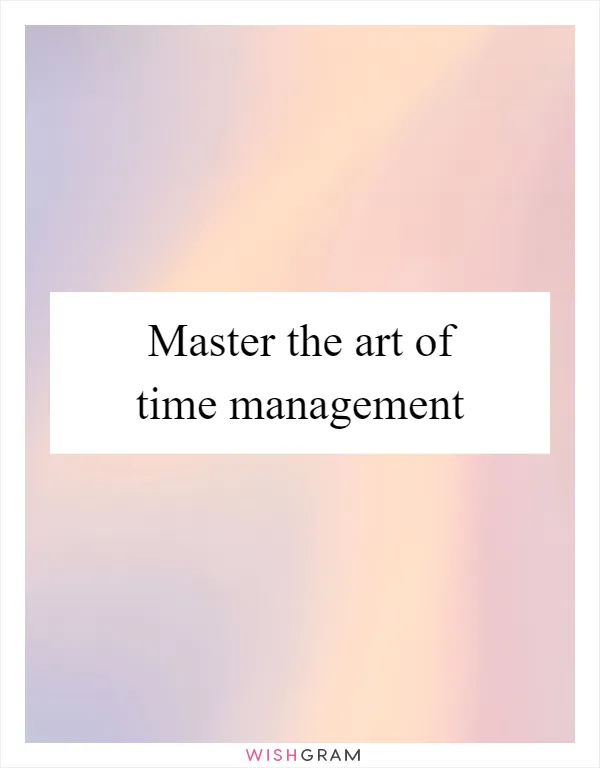Master the art of time management
Time management is a crucial skill that plays a significant role in self-improvement. It allows individuals to effectively allocate their time, prioritize tasks, and achieve their goals efficiently. Mastering the art of time management can lead to increased productivity, reduced stress levels, and a better work-life balance.
One of the key aspects of time management is setting clear goals. By defining what you want to achieve, you can create a roadmap that guides your actions and helps you stay focused. Setting both short-term and long-term goals allows you to break down larger tasks into smaller, more manageable steps. This approach not only enhances your productivity but also provides a sense of accomplishment as you tick off completed tasks.
Another essential element of time management is prioritization. It involves identifying the most important and urgent tasks and allocating your time accordingly. Prioritizing tasks helps you avoid wasting time on less significant activities and ensures that you focus on what truly matters. By organizing your to-do list based on importance and deadlines, you can tackle critical tasks first and prevent them from piling up.
Procrastination is a common obstacle to effective time management. Overcoming this habit is crucial for self-improvement. Procrastination often stems from fear, lack of motivation, or feeling overwhelmed. To combat it, break tasks into smaller, more manageable parts, set deadlines for each step, and reward yourself upon completion. Additionally, eliminating distractions, such as turning off notifications or finding a quiet workspace, can help you stay focused and avoid procrastination.
Time management also involves learning to say no. Many individuals struggle with taking on too many commitments, which can lead to feeling overwhelmed and stretched thin. By setting boundaries and politely declining tasks that do not align with your goals or priorities, you can free up time for activities that truly matter to you. Remember, it is okay to prioritize your own well-being and avoid overextending yourself.
Effective time management also includes scheduling regular breaks and downtime. While it may seem counterintuitive, taking breaks can actually enhance productivity. Stepping away from work allows your mind to rest and recharge, improving focus and creativity when you return. Additionally, incorporating activities you enjoy into your schedule, such as hobbies or spending time with loved ones, promotes a healthy work-life balance and overall well-being.
To master the art of time management, it is essential to develop good organizational skills. Utilize tools such as calendars, planners, or digital apps to keep track of deadlines, appointments, and tasks. Breaking down larger projects into smaller, actionable steps and assigning specific time slots for each task can help you stay organized and on track. Regularly reviewing and updating your schedule ensures that you are aware of upcoming commitments and can adjust your plans accordingly.
